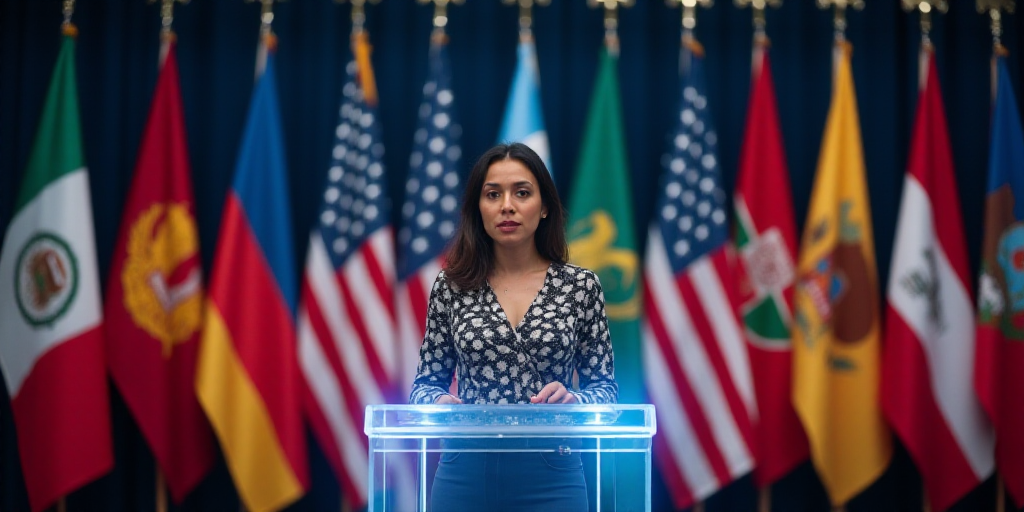Introduction and Background
Following a period of instability, Patricia Zarza Delgado has been elected as the first female rector of the Autonomous University of the State of Mexico (UAEMéx) for the 2025-2029 term. The election took place amidst turbulent weeks of student protests, which highlighted the growing discontent within the university community.
The Election Process
This election marked a significant change in the UAEMéx’s voting process, transitioning from being elected by the University Council to direct, free, and secret voting by students. This transformation makes UAEMéx the 11th university to adopt this new method, emphasizing representativeness and respect for the majority’s will.
The student body, representing approximately 88,000 students, held 50% of the voting power, while academic and administrative sectors each held 25%. Zarza Delgado secured the majority of votes with 118 points out of a possible 213, garnering 55.39% of the total vote.
Zarza Delgado’s Vision and Proposals
In her inaugural message, Zarza Delgado acknowledged the challenges faced during the electoral process and emphasized the importance of dialogue to restore stability within the institution. She proposed four key areas for focus: university transformation, austerity, open dialogue with dissatisfied students, and gender perspective, alongside regional issue support and cultural, sports, and applied research promotion.
Student Protests and Reactions
The election process was not without controversy. Some student assemblies, such as those from the Faculties of Humanities, Medicine, and Languages, called for non-participation or nullification of the vote. Despite these calls, approximately 20% of students, 54% of the academic sector, and 88% of administrative staff cast their votes.
During the elections, there were minor disturbances, including accusations of vote-rigging and corruption. However, these incidents did not affect the voting process itself.
Who is Patricia Zarza Delgado?
Patricia Zarza Delgado holds a degree in Industrial Design, a master’s in Product Development from the University of Catalonia, another master’s in Design Sciences from the University of Arizona, and a doctorate in Social Sciences from El Colegio Mexiquense.
With three decades of teaching experience at the Faculty of Architecture and Design, Zarza Delgado has taught both undergraduate and postgraduate courses. She is a member of the Sistema Nacional de Investigadores (SNI) at level I and has served in key administrative roles, including Secretary of Research and Advanced Studies and Director of the Faculty of Architecture and Design from 2017 to 2021.
Key Questions and Answers
- Who is Patricia Zarza Delgado? Patricia Zarza Delgado is a Mexican industrial designer, holding degrees from the University of Catalonia, the University of Arizona, and El Colegio Mexiquense. She has spent 30 years teaching at the Autonomous University of the State of Mexico and has served in various administrative roles.
- What changes did the election process bring to UAEMéx? The election process transformed to allow direct, free, and secret voting by students, who now hold 50% of the voting power. This change emphasizes representativeness and respect for the majority’s will.
- What are Zarza Delgado’s key proposals? Zarza Delgado aims to focus on university transformation, austerity, open dialogue with dissatisfied students, gender perspective, and support for regional issues. She also intends to promote cultural, sports, and applied research.
- How did students react to the election process? Despite some student assemblies calling for non-participation or nullification of the vote, approximately 20% of students, 54% of the academic sector, and 88% of administrative staff cast their votes. There were minor disturbances during the elections, but these did not affect the voting process itself.






